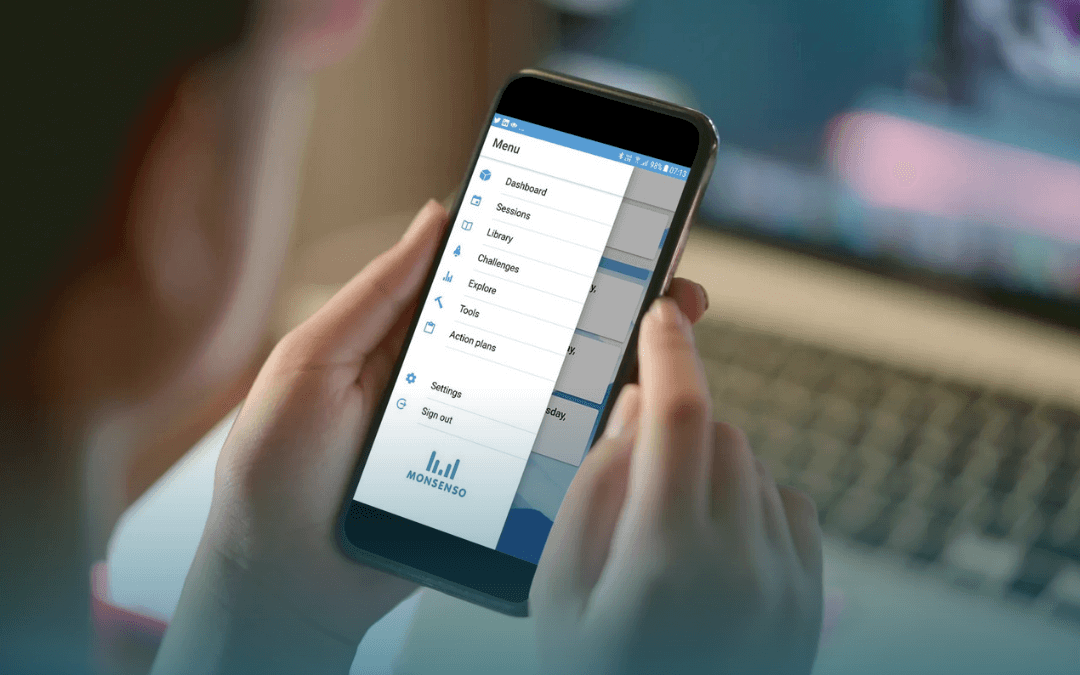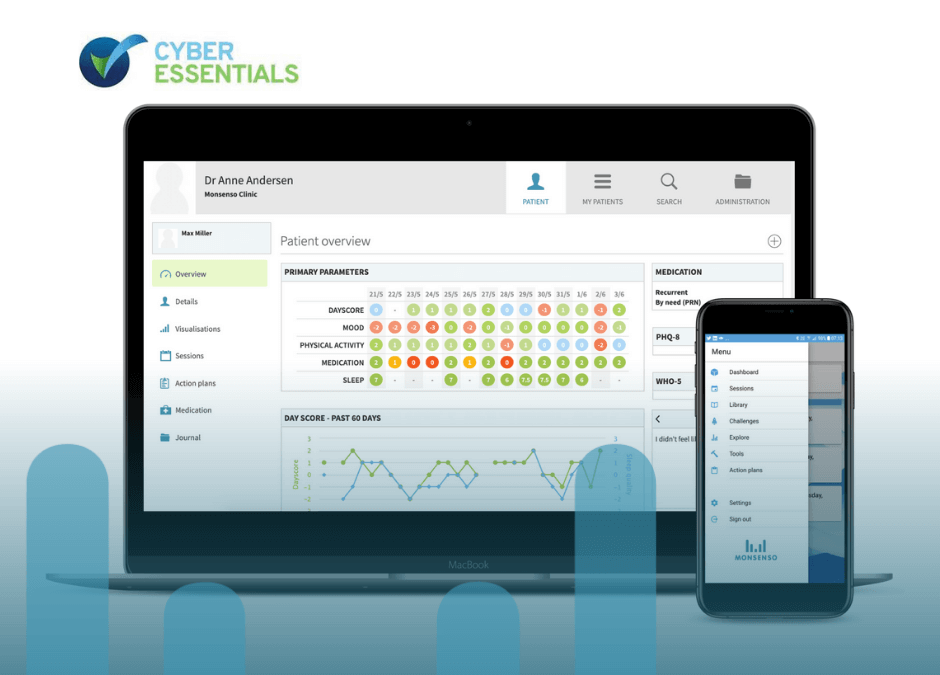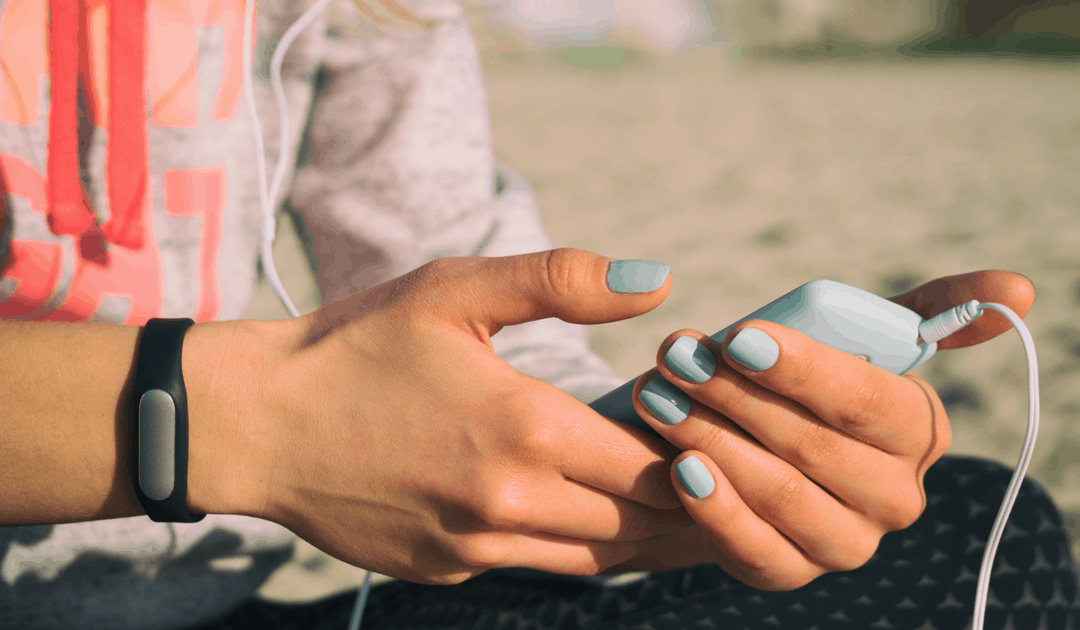
by Thomas Lethenborg | May 14, 2021 | News
Monsenso signs a new contract with the Psychiatric Centre of Copenhagen. The Monsenso digital health solution will be used to collect real-world data in the precision medicine research project “PRECISE”.
The research project is led by Professor Michael E. Benros, head of research, Biological and Precision Psychiatry at the Copenhagen Research Centre for Mental Health at Copenhagen University Hospital and covers 100 patients with affective disorders.
Precision psychiatry initiative (PRECISE)
The purpose of the “PRECISE” study is to identify biological causes of psychiatric illnesses to identify objective markers for severe psychiatric illnesses by integrating big data from national registries and biobanks into detailed clinical data to improve clinical decision-making and treatment response. Currently, treatment options for mental illness are determined by a “one-size-fits-all” approach, resulting in an unacceptably large proportion of non-responding patients. Collecting and leveraging real-world data may enable more accurate diagnostics, prevention, and new treatment strategies.
Real world-data collection on self-reported and behavioural data
The Monsenso digital health solution will be used to collect data on patient-reported outcomes through clinical questionnaires and daily self-assessments, as well as behavioural data from wearables. In addition, the patients will be offered in-app study information and can receive reminders about medication and consultations with their clinician.
“We are pleased to expand our collaboration with the Psychiatric Centre of Copenhagen and proud to be contributing to the PRECISE project,” says Thomas Lethenborg, CEO of Monsenso. “Mental illness is the biggest disease burden in society in the 2020s. To reduce the burden, it is critical to leverage data to diagnose and monitor mental disorders correctly and to give the right treatment to the right patients. We are happy that the Monsenso solution can contribute to that.
For additional information contact:
Bettina van Wylich-Muxoll
Chief Marketing Officer
marketing@monsenso.com
Monsenso

by Thomas Lethenborg | Apr 8, 2021 | News
Copenhagen, Denmark – 8th of April 2021.
Monsenso A/S, a technology leader in digital health solutions for mental health is now Cyber Essentials certified.
The Monsenso digital health solution that connects individuals and clinicians to provide optimal care received a Cyber Essentials certification demonstrating the company’s commitment to security and data protection.
Cyber Essentials is the UK Government’s answer to a safer internet space for organisations of all sizes, across all sectors. Developed and operated by the National Cyber Security Centre (NCSC), the Cyber Essentials certificate assures that essential cyber security measures are in place to protect data against cyber-attacks.
“Monsenso is committed to adhere to the highest security standards. Beyond the Cyber Essentials certification, Monsenso holds the ISO 13485 and ISO 27001 certifications, a TGA certification, class 1 CE mark and is HIPAA compliant. The Cyber Essentials certification demonstrates our continuous commitment to keep the data of our customers secure” says Thomas Lethenborg, CEO at Monsenso.

To read more about our data protection, download our Data management & Security fact sheet.
About Monsenso
Monsenso is an innovative technology company offering a digital health solution used for decentralised trials, remote patient monitoring and treatment support. Our mission is to contribute to improved health for more people at lower costs by supporting treatment digitally and leveraging patient-reported outcomes data. Our solution helps optimise the treatment and gives a detailed overview of an individual’s health through the collection of outcome, adherence, and behavioural data. It connects individuals, carers, and health care providers to enable personalised treatment, remote care, and early intervention. We collaborate with health and social care, pharmaceuticals, and leading researcher worldwide in our endeavours to deliver solutions that fit into the life of patients and health care professionals. To learn more visit www.monsenso.com.
For additional information contact:
Bettina van Wylich-Muxoll
Chief Marketing Officer
Monsenso
+45 22 70 47 24
marketing@monsenso.com

by Thomas Lethenborg | Jul 5, 2016 | Blog, mHealth
Using smartphone apps to improve mental healthcare is definitely a possibility in today’s world where almost everything can be taken care of with just a click.
According to the ECNP/EBC report, there 165 million people or 38% of the population in Europe are affected by a mental illness. The successful treatment of mentally-ill individuals depends on some factors, and medication alone is not sufficient. There are various methods of treatment which they often include a mixture of therapy, self-help, and medication. Some individuals also choose to include exercise, meditation and creative art therapies, to help in their recovery process.
Smartphone apps to improve mental healthcare, an alternative that goes beyond
We live in an era where we have integrated smartphones in our daily lives, from conducting business, to interacting with our loved ones; and from purchasing items online to doing research on something we are interested. Can we take advantage of this technology to help those who need it the most?
It is a well-known fact that there is a major shortage of trained professionals who provide the kind of care patients need. In Europe alone it has been estimated that only 25% of individuals suffering from any mental disorder undergo treatment; while it is also estimated that only 10% of those mentally-ill receive an “adequate treatment.”
There are hundreds of mood trackers and mental health apps available for download. However, they have not been developed with the support from trained clinicians and have no evidence from clinical trials. Is this really the best way to go?
Huge Potential
If thoroughly tested and implemented effectively, mobile health applications can help clinicians and individuals by enabling self-treatment, speeding up the recovery process and prioritising treatment for those who need it the most.
Monsenso is a Copenhagen-based emerging company offering an mHealth platform to help clinicians overcome the burden of mental disorders. The effectiveness of this innovative solution is due to its double-loop treatment model.
On one side, healthcare providers use a web portal to monitor individuals on a continuous basis, identify early-warning signs and offer proactive treatment. On the other, users employ a smartphone to collect data, which is sent automatically to the clinic, enabling healthcare providers to deliver a prompt response.
Clinicians and users can easily access all historical data captured through the smartphone and obtain an accurate analysis and patterns of such data. In additional to historical data, the system can also provide accurate predictions of a patient’s moods and states during the upcoming five days.
Monsenso’s technology is based on continuous research. At the moment, there are ongoing studies and technical trials in bipolar disorder and schizophrenia to ensure the system is stable, scalable and that it helps improve an individual’s well-being.
This is just the beginning
Although mental health care providers deliver a fantastic care, there are hardly enough professionals to ensure everyone receives adequate treatment. Technology and innovation are required to ensure that people living with mental disorders obtain the best treatment available in a timely manner.
Click on the links to learn more about the Monsenso mHealth solution mental health consisting on a smartphone app for individuals, carers and a web portal for clinicians.
Reference:
[1] The size and burden of mental disorders and other disorders of the brain in Europe 2010. ECNP/EBC REPORT 2011.
https://www.ecnp.eu/~/media/Files/ecnp/communication/reports/ECNP%20EBC%20Report.pdf




